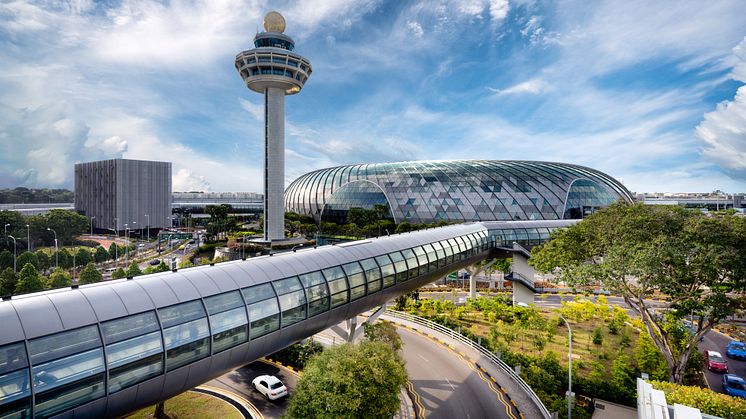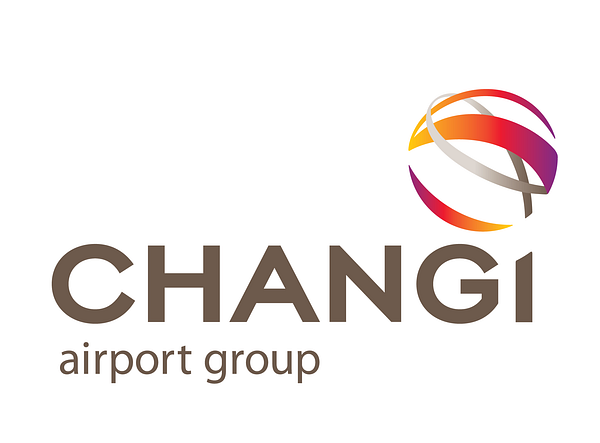
Press release -
Changi Airport Group (Singapore) Pte. Ltd. and its subsidiaries results for the year ended 31 March 2022 (FY2021/22)
The following table summarises the consolidated financial information of Changi Airport Group (Singapore) Pte. Ltd. (“CAG” or the “Company”) and its subsidiaries (the “Group”).
(S$’million) | FY2021/22 | FY2020/21 |
Change (%) |
Profit and Loss Statement (P&L) | |||
Total revenue | 944 | 697 | 35% |
|
Total expenses (including depreciation and amortisation) | (1,526) | (1,433) | -6% |
EBITDA1 | 232 | 178 | 31% |
Loss attributable to shareholder of the Company | (838) | (954) | 12% |
Financial Position | 31 March 2022 | 31 March 2021 |
Change (%) |
Assets | 12,750 | 15,301 | -17% |
Liabilities | 6,628 | 8,469 | -22% |
Cash and marketable securities | 1,888 | 1,815 | 4% |
Loans and borrowings | 2,016 | 1,837 | 10% |
Equity attributable to shareholder of the Company | 6,218 | 6,916 | -10% |
1 EBITDA (Earnings before interest, taxes, depreciation and amortisation) include Covid-19 grants received from government authorities amounting to S$98 million (FY2020/21: S$218 million).
Group Operating Revenue
The Group registered a 35% increase in revenue to S$944 million (FY2020/21: S$697 million) due mainly to higher passenger traffic at Changi Airport. Most of the increase in passenger traffic came on the back of the launch of Vaccinated Travel Lanes (VTLs) and easing of travel restrictions in the latter part of the financial year. Changi Airport saw its passenger numbers rise to 1.14 million or 20% of pre-Covid-19 levels in the month of March 2022, its highest since the start of the pandemic.
Changi Airport achieved full year passenger traffic of 5.2 million in FY2021/22. This was 8% of pre-Covid-19 levels, but more than four times the number from the previous financial year. During the financial year, the Group continued to extend support to the airport partners and tenants through various government assistance schemes and rental waivers.
Group Operating Expenses
Excluding depreciation and amortisation charges of S$716 million, the Group incurred operating expenses (Opex) of S$810 million in FY2021/22 (FY2020/21: S$737 million).
With continued efforts on cost control and support from the Singapore Government, the Group was able to keep its Opex at approximately half of pre-Covid-19 levels. Compared to the previous financial year, Opex increased by 10% due mainly to costs incurred for the implementation of safe travel operational protocols and partial restoration of salary cuts by CAG as part of staff retention measures. Operations at Terminal 2 (T2) and Terminal 4 (T4) remain suspended to allow CAG to keep its operating costs low. To support traffic recovery, T2 will progressively open in tandem with expected higher passenger traffic.
EBITDA
With higher revenue, tight cost controls and continued government support, the Group achieved a positive EBITDA of S$232 million in FY2021/22 (FY2020/21: S$178 million).
Loss on Deconsolidation and Write-down of Investments
During the financial year, the business and economic environment in Brazil continued to remain challenging. Despite short-term support from the Brazilian Government, Brazil’s deep economic recession, coupled with the global Covid-19 pandemic, had made it untenable for the Group to continue to operate Tom Jobim Airport under the terms of the existing concession agreement. As a result, the Group filed for a re-auction of the concession on 10 February 2022. As at 31 March 2022, the Group deconsolidated Concessionária Aeroporto Rio de Janeiro (“CARJ”) as a subsidiary and recognised CARJ as an equity-accounted investee. Arising from this, the Group recorded a deconsolidation loss of S$128 million, reflecting a reclassification of foreign currency translation reserve to the P&L in FY2021/22.
Due to the current conflict between the Russian Federation and Ukraine, the Group has practical difficulties participating in its Russia investments’ financial and operational activities. Due to the uncertainty as well as disruptions to airport operations, the Group recorded a full write-down of S$201 million relating to its investments in Russia.
The above-mentioned events are non-cash in nature and are not expected to have any adverse impact on CAG’s ability to meet its financial obligations to its noteholders.
Net Loss
Taking into consideration the above deconsolidation loss, write-down of investments in Russia as well as depreciation and amortisation charges, the Group recorded a net loss attributable to shareholders of the Company (or net loss) of S$838 million (FY2020/21: S$954 million).
Financial Position
As at 31 March 2022, total equity attributable to the shareholder of the Company was S$6.2 billion, reflecting a decline of 10% due mainly to the net loss suffered in FY2021/22.
Tight cost control and support from the Singapore Government helped the Group contain its cash burn for FY2021/22. During the financial year, to further strengthen its liquidity position, CAG raised a total of S$750 million through bond issuances. A revolving credit facility of S$2 billion was also secured to serve as a standby source of liquidity.
As at 31 March 2022, the liquidity position of the Group remained healthy with cash and marketable securities totalling S$1.9 billion (FY2020/21: S$1.8 billion).
Remarks by Chairman & CEO
Mr Tan Gee Paw, Chairman of CAG, said: “The past year continued to be turbulent as the aviation industry confronted new Covid-19 variants that kept the resumption of travel at bay. Changi Airport and our overseas investments could not be fully immune to the evolving virus, but we remained steadfast in our fight against the global pandemic, placing the health and safety of passengers and airport staff a top priority.
“We continued to strengthen our financial position and restore Changi Airport’s connectivity. The strength of the Changi air hub lies in its community of partners and CAG is grateful for the collaborative spirit which has helped tide us through the waves of disruption to airport operations during the year.
“Although the global economic and political environment remains highly volatile, Changi Airport is well-poised for travel recovery with an agile, adaptable and innovative workforce behind the efforts to revive air travel."
Mr Lee Seow Hiang, CEO of CAG, said: “The journey of recovery is expected to present new challenges, including operational disruptions which have affected many airports due to manpower and capacity dislocations. Our focus will be on ensuring that Changi Airport upholds its service excellence and core capabilities to be a well-connected, safe and efficient global aviation hub as travel starts to pick up.
“Working closely with our airline partners, we are ready to ramp up our handling capacity and have since increased Changi Airport’s direct city links to 125 which is more than 70% of our pre-Covid network. This makes Changi the most connected air hub in Southeast Asia.
“We look forward to welcoming more passengers with an expanded and refurbished T2 which will reopen in phases and, if needed, can resume operations at T4 at short notice to meet a surge in demand. Underlying our efforts is our commitment to delivering our hallmark Changi Experience so that passengers will once again be delighted by our rejuvenated terminals with award-winning facilities and best-in-class retail offerings.”
Topics
Categories
About Changi Airport Group
Changi Airport Group (Singapore) Pte Ltd (CAG) (www.changiairportgroup.com) was formed on 16 June 2009 and the corporatisation of Singapore Changi Airport (IATA: SIN, ICAO: WSSS) followed on 1 July 2009. As the company managing Changi Airport, CAG undertakes key functions focusing on airport operations and management, air hub development, commercial activities and airport emergency services. CAG also manages Seletar Airport (IATA: XSP, ICAO: WSSL) and through its subsidiary Changi Airports International, invests in and manages foreign airports.

